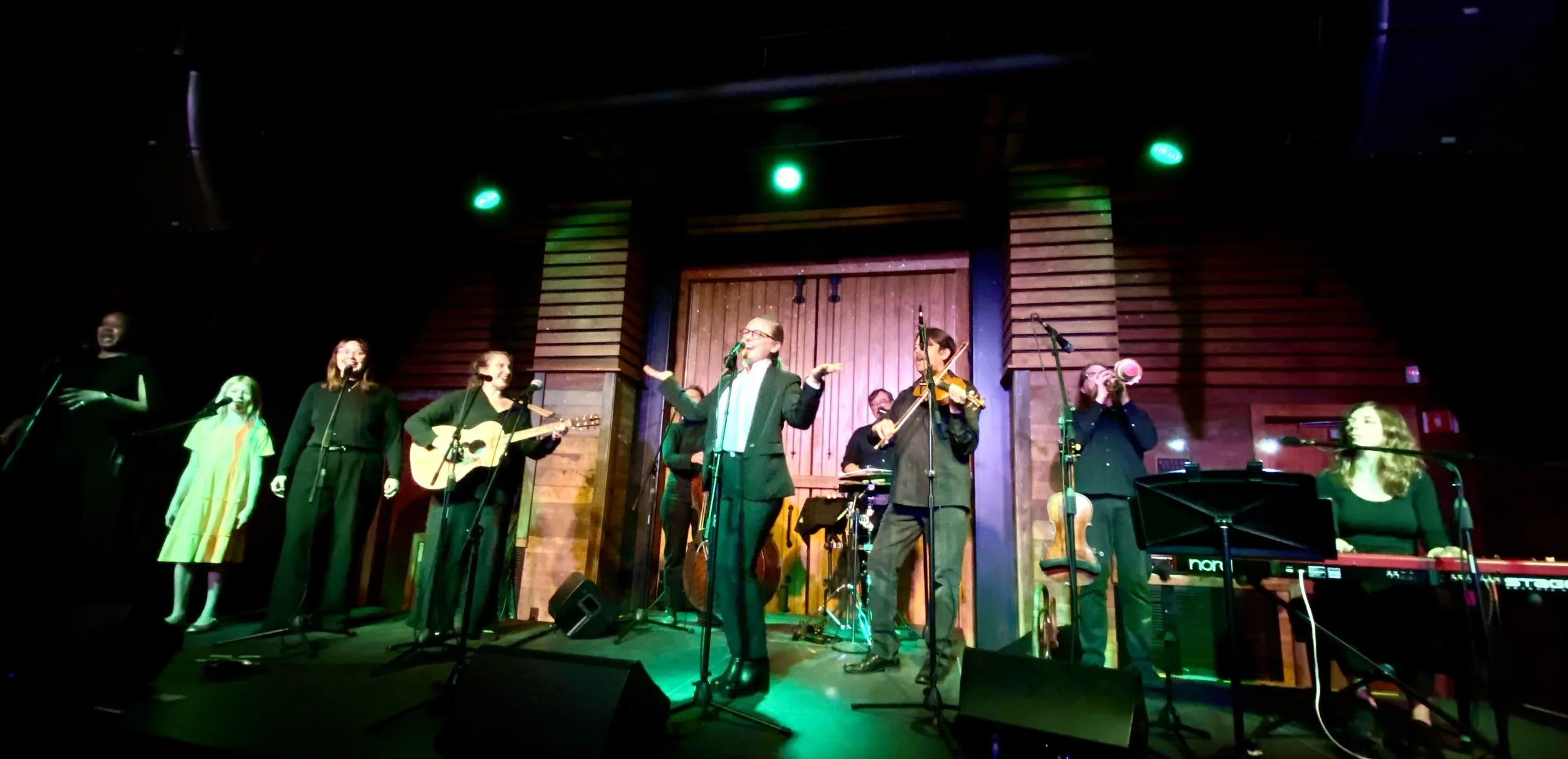Orange on the Blue Ridge
a folk opera of love, music, and place
BERRYVILLE — For 19 years, Suni Mackall prosecuted every kind of crime in Clarke County [Virginia]— from hit-and-runs to homicides. Now, years after stepping away from her role as commonwealth’s attorney, Mackall has found an unexpected way to continue honoring the dead: through song.
Her original, self-described folk opera, “Orange on the Blue Ridge,” [is a] musical tribute — inspired by the lives of murder victims — is “an abstract reflection in music,” she said in a press release. “It’s about connecting the love I felt surrounding the victims with the love I heard in music — and then expressing that music and love to the audience.”
The show first debuted in November 2024 to an audience overcome by emotion. “You saw tears of joy that were just overwhelming people as they walked out,” said Martha Reynolds, executive director of the Barns of Rose Hill. “It was a really beautiful experience.”
From the courtroom to the stage
The idea for the show came slowly, Mackall said. After retiring from the prosecutor’s office in 2017, she couldn’t stop thinking about the lives that had passed through her courtroom.
“I just felt like I saw and heard this show and the music,” she said in a recent interview. “I kept thinking about it, and it kept coming back to me, and I couldn't forget it, and I couldn't forget the victims.”
In her nearly two decades as Clarke County’s top prosecutor, Mackall made a quiet ritual of placing a photograph of each homicide victim on her desk — “one that showed the person happy, radiant, full of joy,” according to the release. Over time, those faces began to speak to her in music.
“I couldn’t stop thinking about these lost souls,” she explained. “So I started writing.”
The result is a one-hour production composed of 12 songs with no dialogue and no plot in the traditional sense. There are no names mentioned, and details of the cases are not depicted.
A soundtrack for grief and grace
To bring her vision to life, Mackall partnered with Morgan Morrison, a local musician and former program director for the Barns at Rose Hill. The two had never met before, but quickly developed a creative synergy.
“Can you imagine you have this idea in your head, and then you find someone like Morgan who can translate it and connect it artistically?” Mackall said. “It’s just all fallen together.”
Morrison worked closely with Mackall, receiving lyrics and musical inspirations for each song. “She gave me a bunch of lyrics, and then she gave me examples of what she wanted each song to sound like,” Morrison said. “So I listened to these songs...I had to get the feeling, not so much the chord progression...but the vibe.”
The final sound blends folk, jazz and acoustic music, Morrison noted.
“There’s definitely a folky element,” she said. “We have fiddles, guitars, acoustic guitar, but we also have percussion and horns. There’s fast songs and slow songs…it’s not sappy by any means, but it takes you on an emotional ride.
Morrison also said she felt drawn to the show’s message. “The idea that my life would be summed up by my death, particularly if it’s a tragic death…that’s not how you want to be remembered,” she said. “This speaks to the entirety of them — the love, the good moments, the beauty.”
A different kind of ending
Although she did not consult the families of the homicide victims while writing “Orange on the Blue Ridge,” Mackall said the show takes inspiration from the conversations she had with them while working on each case.
“After any death case, you meet with the family, and I was so impacted by the love that I felt surrounding these victims,” she said. “I didn’t know any of these folks before they died. I only met them after, through their families."
For Morrison, the result is something close to mystical. “It sounded so crazy that I wanted to hear more,” she said of her first meeting with Mackall. “It’s like…dead people in outer space. But then the more we talked, the more it felt important. Like we were writing a different ending for them — a Broadway finale.”
Mackall agrees. “I believe in all this afterlife stuff,” she said. “That we can manifest love in music, in the air. That we really are communicating...we really are capturing this frequency.”
The pair recorded the music at Cabin Studios in Leesburg. Mackall, who is gradually losing her hearing due to nerve damage from a decades-old incident, said the urgency of preserving this project was deeply personal.
“I love music. I feel a lot when I hear music,” she said. “I wear hearing aids and my hearing is getting worse and worse, so I worry that I’m not going to be able to hear things. That was one of the reasons I wanted to do this…maybe next year, I can’t hear at all.”
Mackall has since returned to the courtroom, serving as the Clarke County Assistant Commonwealth's Attorney since last year.
— The Winchester Star
For information about upcoming performances, please follow us on Facebook.



